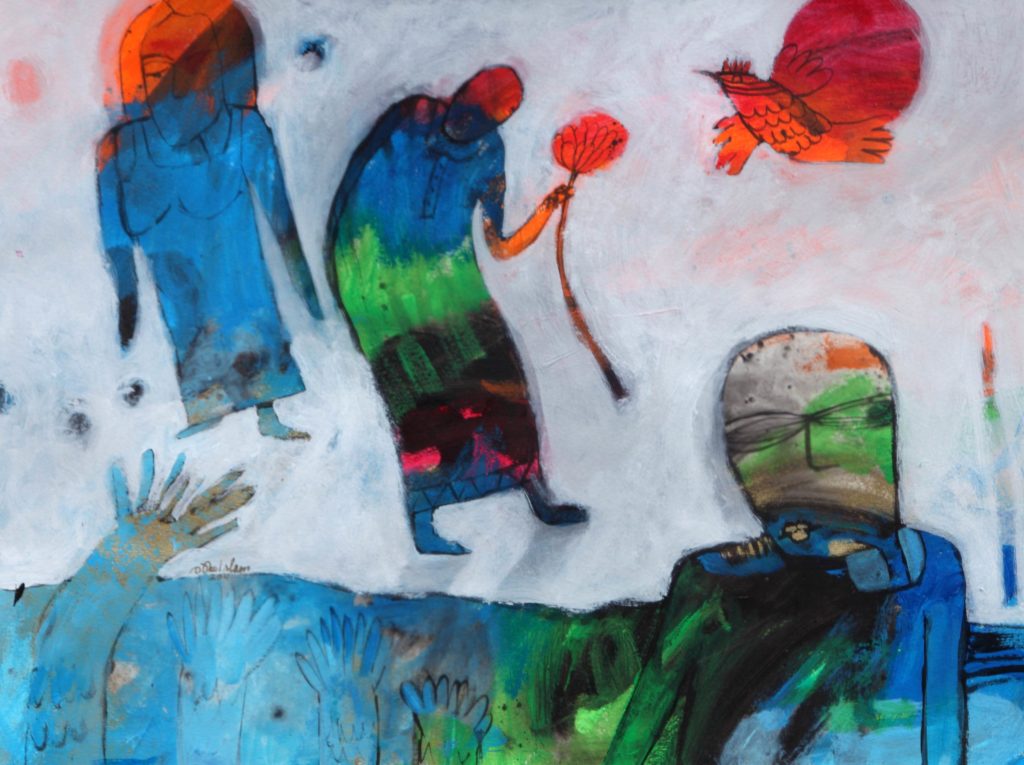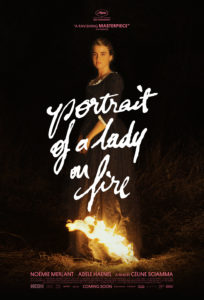New poems by Nathan McClain, Sara Elkamel, and Brian Simoneau
NATHAN MCCLAIN | The Flowers
| At the Park, a Boy’s Birthday
SARA ELKAMEL | Instructions for getting around a desert
BRIAN SIMONEAU | Each morning I get up I die a little
NATHAN MCCLAIN
The flowers
in the greenhouse
now flowers
in the supermarket
rubber-bound
clipped
from wherever
they seemed almost
to nod
their agreement with what
the breeze once said
now flowers
in some glass vase
on the dining room table
where no one eats
What race they are
doesn’t matter nor if
their stems are thorny
you see
They’re just flowers
They die
You walk by
them all the time
hardly thinking
twice about their names
At the Park, a Boy’s Birthday Party
No surprises here, really.
Not the plastic,
white cutlery
or the fancy glass bowl,
cubes of pineapple
and Bosc pear
floating in punch
(naturally red)
that no one
(thank the Lord)
has thought yet to spike.
Each boy, blindfolded,
spun in place, and shoved
down the piñata’s path
with a bat
he can barely lift,
the piñata star-shaped,
tasseled pink at its ends,
seems accurate.
At this age,
their limbs
inarticulate as the smoke
of catfish or pork ribs
that hiss on the park grill.
They hardly notice
the sun’s descent.
It’s getting late, I think
to say as someone’s father
knots the blindfold
over my eyes. Fits the bat
into my hands. In my ear,
the boys shriek, and there—
the star,
snagged in the oak
of my mind, the rope,
swaying
almost gently. How,
even dizzied,
do I step towards it?
SARA ELKAMEL
Instructions for getting around a desert
The bride is seeing ghosts today.
She stands expertly with unease
as subtle as a sweet surprise
dissolved under a cloud.
There is nothing around
to quiver. Just our unkindness
pouring out our hands
like sand.
When they describe sugar
they say it looks
like salt. Feels the same when
bitten. For its gentleness,
ideal as a cure for dryness,
acidity, soreness, even weak
eyesight. But when she sees
the same dream twice, the bride
self-medicates: dissolves elsewhere
in gentle hot earth. Fills
her palms with salt, but
are these the kinds of gifts
you give at the end?
How red is a red infinity
if you give it your back,
your head like a rosefinch
caught in the horizon.
How infinite?
BRIAN SIMONEAU
Each morning I get up I die a little
A truck rumbles the day to life, lifts with robotic arm our bin
and sets it softly down. We are living in the future
and the future brought pain to ankles, to knees, my temples
rendered gray. So today I don a fraying t-shirt, silk-screened
logo faded the way our favorite mix-tape songs now slip
from digital lives. What’s come won’t come undone, summer
hungover, and the slang we sang unstrung, each year a little
harder to believe. I walk the girls to school over squares
of cement cracked by frost and passing to nowhere, corners
with no corner stores, even gas stations an indecent drive
away, past bedroom after bedroom, two-car garages hiding
if people are home or not. Kids on the street wait for the day
to begin with vinyl seats and backpacks on laps, their task
what it is for us all: remake themselves to the minute at hand.
Unshaven, unshowered, a baseball cap tugged into place,
I flip-flop down the block, stop to watch a helicopter
overhead. I will hop and skip. I will not step on a crack.
Nathan McClain is the author of Scale(Four Way Books, 2017), the recipient of fellowships from Sewanee Writers’ Conference, The Frost Place, the Bread Loaf Writers’ Conference, and a graduate of Warren Wilson’s MFA Program for Writers. His poems and prose have recently appeared or are forthcoming in Poem-a-Day, The Baffler, West Branch Wired, upstreet, and Foundry. He teaches at Hampshire College.
Sara Elkamel is a journalist and poet, living between Cairo and New York City. She holds an M.A. in arts and culture journalism from Columbia University. Her writing has appeared in The Guardian, The Huffington Post, Guernica, The Common, Winter Tangerine, American Chordata and elsewhere.
Brian Simoneau is the author of the poetry collection River Bound (C&R Press, 2014). His poems have appeared in Boston Review, Cincinnati Review, Colorado Review, Crazyhorse, The Georgia Review, Mid-American Review, Southern Indiana Review, Third Coast, and other journals. Originally from Lowell, Massachusetts, he lives near Boston with his family.














